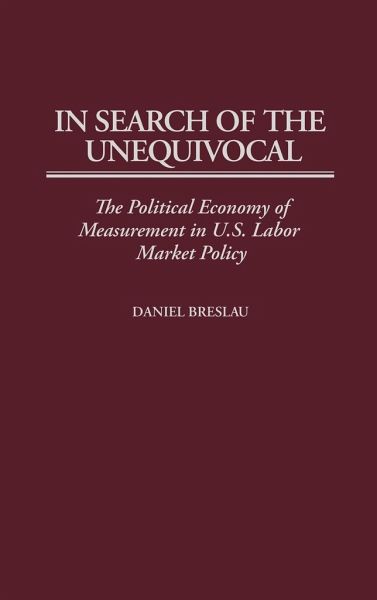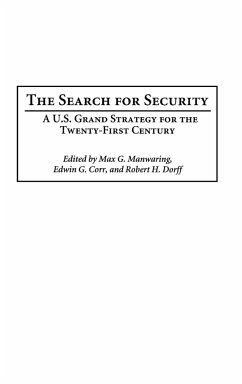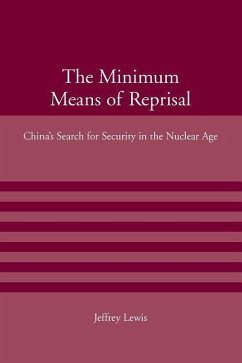
In Search of the Unequivocal
The Political Economy of Measurement in U.S. Labor Market Policy
Versandkostenfrei!
Versandfertig in 1-2 Wochen
69,99 €
inkl. MwSt.

PAYBACK Punkte
35 °P sammeln!
Evaluation of social programs is now performed with greater frequency and with more methodological rigor than ever before. Yet it is not clear that the programs' effectiveness has improved because of this, or even that evaluation results have a rationalizing effect on policymaking. The author of this volume-which is based on a study of evaluation of U.S. employment and training policy from the passage of the Manpower Development and Training Act of 1963 to the welfare reforms of the 1980s and 1990s-argues that the increasing use of social scientific evaluations nonetheless has profound politic...
Evaluation of social programs is now performed with greater frequency and with more methodological rigor than ever before. Yet it is not clear that the programs' effectiveness has improved because of this, or even that evaluation results have a rationalizing effect on policymaking. The author of this volume-which is based on a study of evaluation of U.S. employment and training policy from the passage of the Manpower Development and Training Act of 1963 to the welfare reforms of the 1980s and 1990s-argues that the increasing use of social scientific evaluations nonetheless has profound political consequences. Rather than influencing the programs themselves, evaluation research shapes the political discourse surrounding these programs, setting the terms in which the policy is known and discussed, and establishing conditions for entry into the debate. This study shows that even the most technical features of evaluation methodology are objects of a politics of knowledge and are by no means neutral with regard to the politics of the policies themselves. By applying ideas from the sociology of science to the area of applied social science, this work yields new insights that will be of interest to both of these areas. For the sociology of science, it demonstrates the value of this approach beyond the study of the natural sciences. For policy studies, it stimulates reflection on the political implications of methods normally assumed to be politically neutral. The conclusions about the political significance of evaluation research will also be of interest to political sociologists, who will find a novel way of looking at the role of social science in the formation of social policy.












